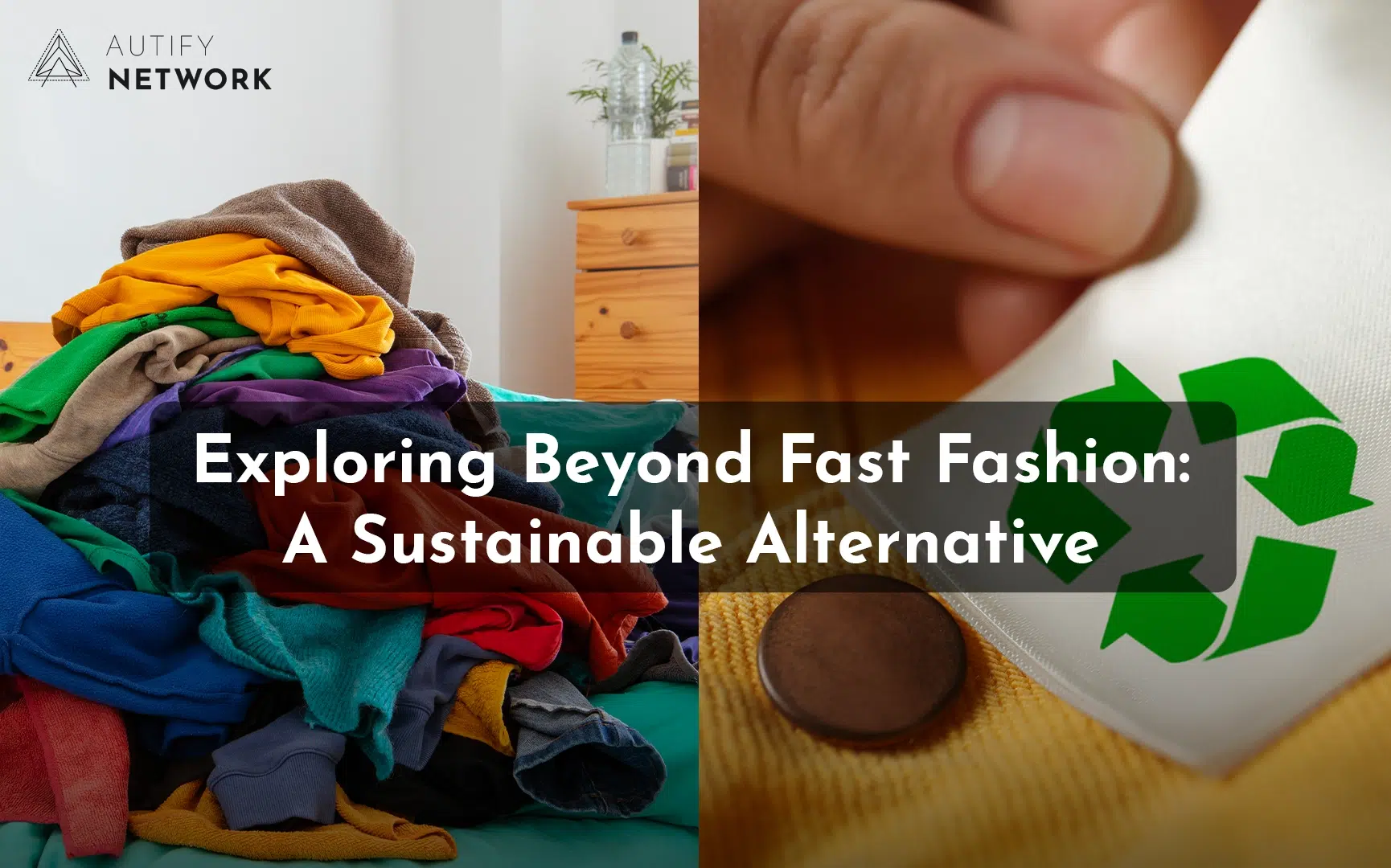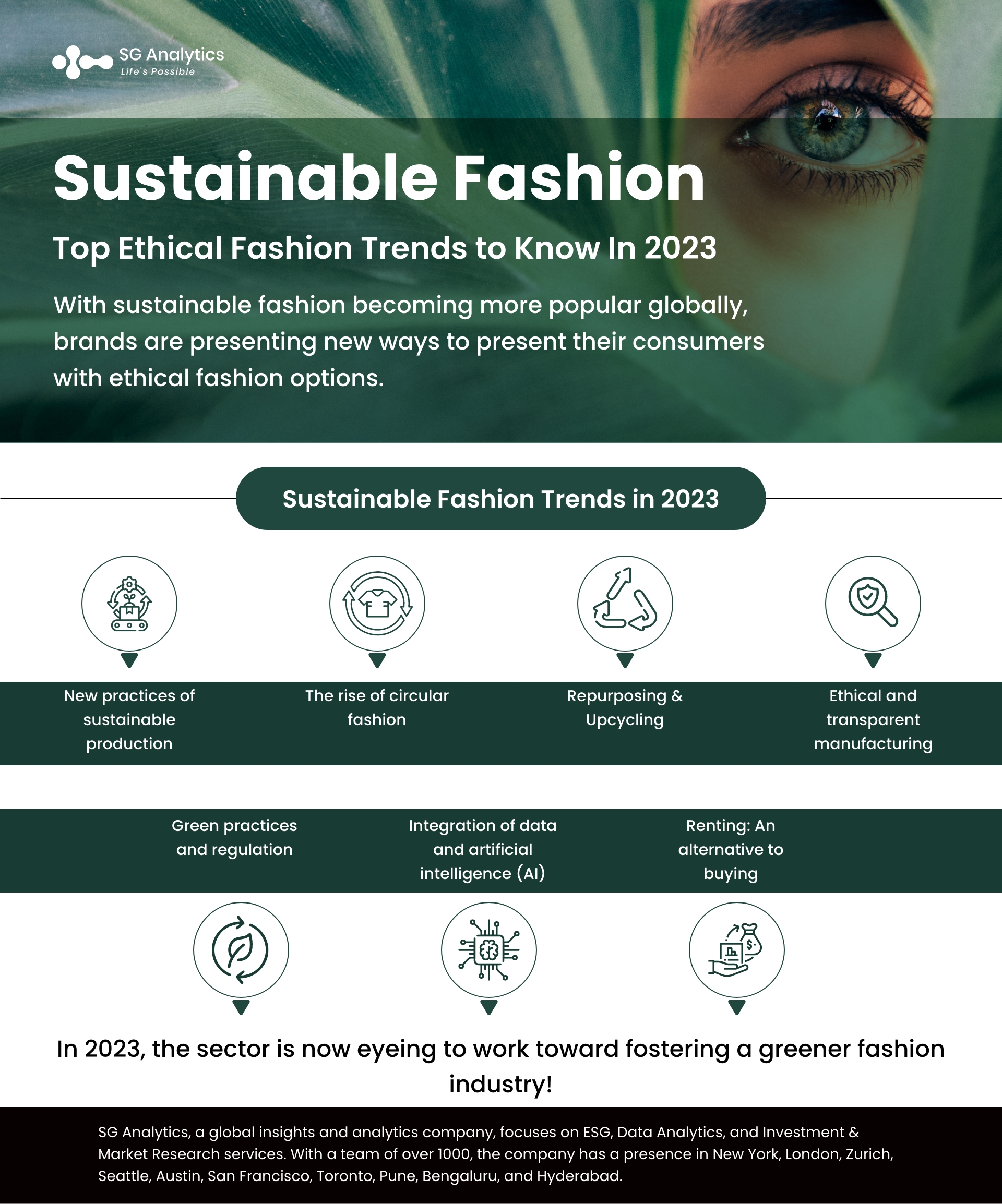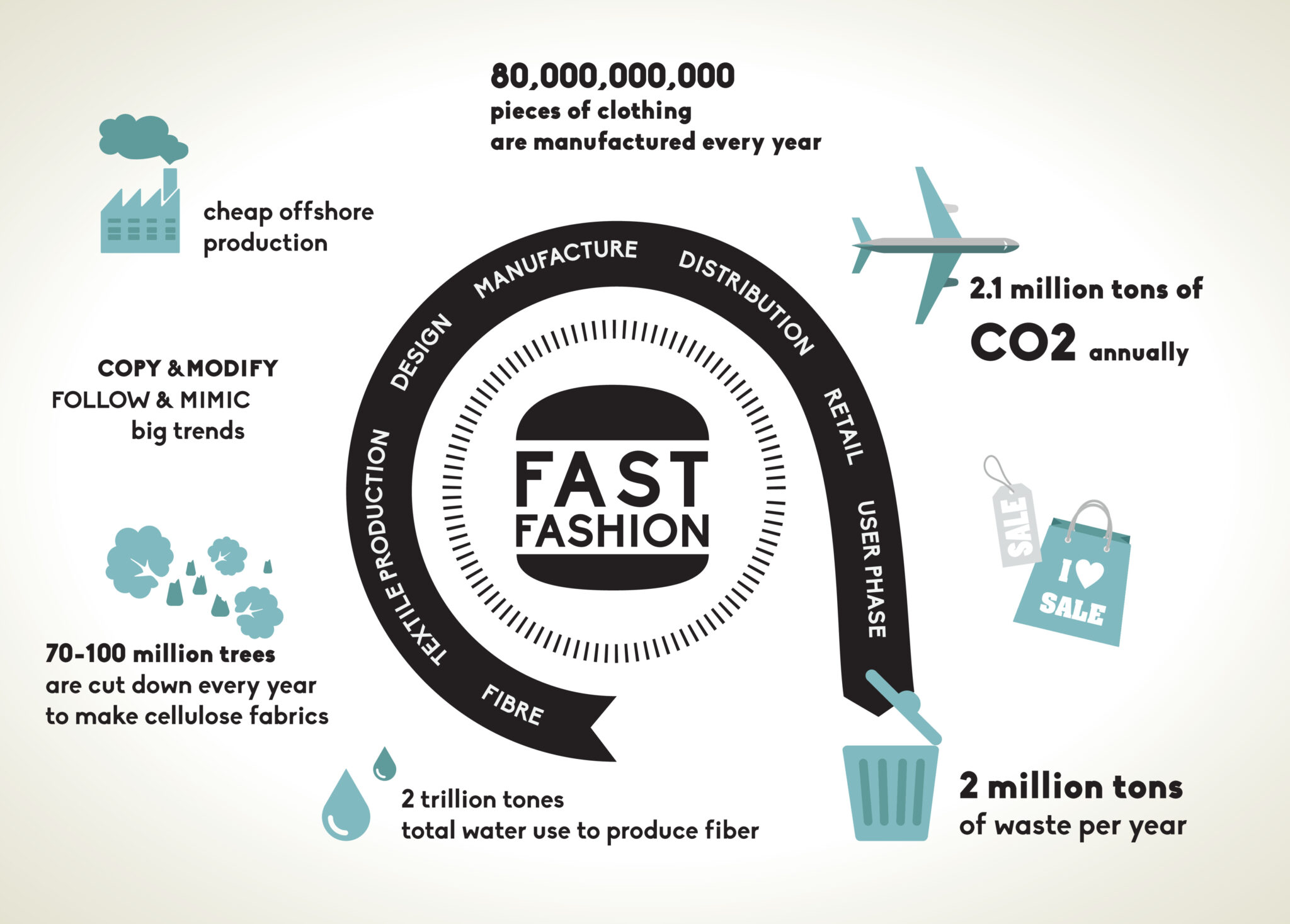Beyond the Fast Lane: Exploring Sustainable and Ethical Fashion Alternatives
Related Articles: Beyond the Fast Lane: Exploring Sustainable and Ethical Fashion Alternatives
Introduction
With great pleasure, we will explore the intriguing topic related to Beyond the Fast Lane: Exploring Sustainable and Ethical Fashion Alternatives. Let’s weave interesting information and offer fresh perspectives to the readers.
Table of Content
Beyond the Fast Lane: Exploring Sustainable and Ethical Fashion Alternatives

The allure of fast fashion – readily available, trendy, and affordable clothing – has captivated consumers for decades. However, the industry’s relentless pursuit of rapid production and low prices comes at a significant cost. Environmental degradation, labor exploitation, and excessive waste are just some of the consequences of this unsustainable model.
Fortunately, a growing movement towards ethical and sustainable fashion is gaining momentum, offering consumers alternatives that prioritize quality, longevity, and responsible practices. This shift signifies a conscious decision to embrace brands that align with values of environmental stewardship, fair labor standards, and ethical sourcing.
Defining Good Fashion: Beyond the Hype
"Good fashion" encompasses a spectrum of practices and principles that move beyond the superficiality of trends and prioritize ethical and environmentally conscious production. Key characteristics include:
- Transparency: Brands openly disclose their supply chain, manufacturing processes, and ethical practices. This transparency allows consumers to make informed decisions about their purchases.
- Sustainable Materials: Utilizing materials that are organically grown, recycled, or ethically sourced minimizes environmental impact and promotes responsible resource management.
- Fair Labor Practices: Brands ensure fair wages, safe working conditions, and ethical treatment for all workers involved in the production process.
- Durability and Longevity: Investing in well-made garments designed to last for years, reducing the need for frequent replacements and minimizing textile waste.
- Minimal Waste and Circularity: Employing practices that reduce waste throughout the production process, including minimizing packaging, utilizing recycled materials, and promoting garment repair and recycling.
Navigating the Ethical Fashion Landscape: A Guide to Choosing Well
The transition from fast fashion to ethical and sustainable alternatives requires careful consideration and research. Here are some key factors to consider when making informed choices:
- Brand Values and Mission: Research the brand’s philosophy, commitment to sustainability, and ethical practices. Look for brands that are transparent about their sourcing, manufacturing, and labor standards.
- Material Composition: Prioritize natural fibers like organic cotton, linen, hemp, and wool, which are often more sustainable than synthetic materials. Look for certifications like GOTS (Global Organic Textile Standard) and OEKO-TEX, which guarantee responsible production practices.
- Production Practices: Investigate the brand’s commitment to fair labor standards, safe working conditions, and ethical sourcing. Consider brands that are members of organizations like Fair Trade USA or the Fair Wear Foundation.
- Durability and Quality: Invest in well-made garments that are designed to last. Look for sturdy construction, quality materials, and timeless designs that can be worn for years.
- Environmental Impact: Consider the brand’s environmental footprint, including their use of water, energy, and chemicals. Choose brands that prioritize reducing their impact through sustainable practices.
A Glimpse into the World of Good Fashion Brands:
1. Patagonia: Known for its commitment to environmental activism and high-quality outdoor apparel, Patagonia is a leader in sustainable fashion. The brand uses recycled materials, promotes fair labor practices, and actively engages in environmental advocacy.
2. Eileen Fisher: This brand prioritizes timeless designs, ethical sourcing, and sustainable materials. Eileen Fisher offers a range of clothing for women, emphasizing quality and longevity.
3. Everlane: Everlane is renowned for its transparency, ethical sourcing, and fair pricing. The brand openly discloses the cost of production for each garment, promoting ethical consumerism.
4. Reformation: Reformation focuses on sustainable and stylish clothing for women. The brand uses recycled materials, promotes ethical production practices, and offers a range of trendy and timeless designs.
5. Veja: Veja specializes in ethically produced sneakers. The brand uses organic cotton, recycled materials, and fair trade practices to create stylish and sustainable footwear.
6. People Tree: People Tree is a pioneer in fair trade fashion. The brand sources its materials from small-scale farmers and artisans, ensuring fair wages and ethical working conditions.
7. Thought: Thought offers a range of sustainable and ethically produced clothing for men and women. The brand uses organic cotton, recycled materials, and fair trade practices.
8. Armedangels: Armedangels is a German brand known for its commitment to fair trade and sustainable production. The brand uses organic cotton, recycled materials, and fair labor practices.
9. Stella McCartney: Stella McCartney is a luxury brand that champions sustainable and ethical fashion. The brand uses vegan materials, promotes fair labor practices, and actively engages in environmental advocacy.
10. Organic Basics: Organic Basics focuses on essential basics made from organic cotton and recycled materials. The brand prioritizes transparency, ethical sourcing, and fair labor practices.
FAQs: Addressing Common Concerns
Q: Are ethical fashion brands more expensive than fast fashion brands?
A: While some ethical brands may have higher price points, the focus on quality and longevity often means that these garments will last longer and require less frequent replacements, ultimately offering better value for money.
Q: Can I find ethical fashion in my local area?
A: Many cities and towns now have independent boutiques and retailers that carry ethical and sustainable fashion brands. Online retailers also offer a wide selection of good fashion options.
Q: How can I be sure that a brand is truly ethical and sustainable?
A: Research the brand’s website, social media, and independent certifications. Look for transparency in their supply chain, manufacturing processes, and labor practices.
Tips for Embracing Good Fashion:
- Shop Less, Choose Well: Invest in fewer, higher-quality garments designed to last.
- Embrace Secondhand Shopping: Explore vintage and secondhand stores for unique and sustainable finds.
- Repair and Repurpose: Extend the life of your clothes by repairing them or giving them a new lease on life through creative repurposing.
- Support Local Artisans: Shop from independent designers and artisans who prioritize ethical production practices.
- Educate Yourself: Stay informed about the ethical and environmental issues surrounding the fashion industry and support brands that are actively working to make a positive impact.
Conclusion: A Shift Towards a More Sustainable Future
The rise of good fashion brands represents a significant shift in consumer consciousness. By embracing ethical and sustainable alternatives, individuals can contribute to a more just and environmentally responsible fashion industry. It is through collective action, informed choices, and a commitment to supporting brands that prioritize people and planet that we can move towards a future where fashion is not only stylish but also ethical, sustainable, and truly good.








Closure
Thus, we hope this article has provided valuable insights into Beyond the Fast Lane: Exploring Sustainable and Ethical Fashion Alternatives. We thank you for taking the time to read this article. See you in our next article!
